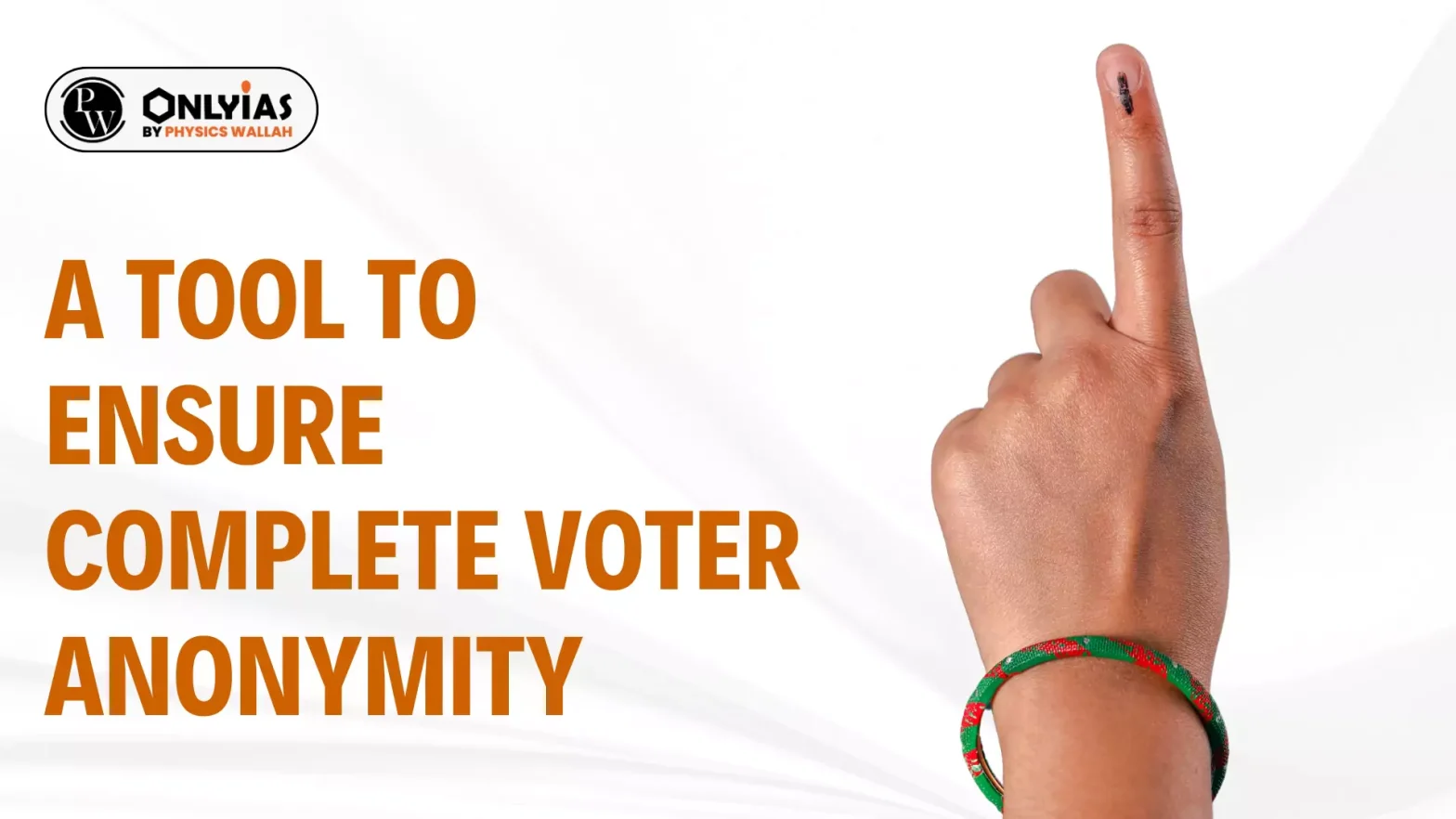The Janata Dal (United) candidate from Sitamarhi Lok Sabha seat, Devesh Chandra Thakur, was in the news for ‘breaching’ the Model Code of Conduct (MCC) no longer in force and rekindling interest in a dormant writ petition (W.P.).
| Relevancy for Prelims: Model Code of Conduct (MCC), Conduct of Election Rules, 1961, Election Commission of India (ECI), Law Commission of India, etc.
Relevancy for Mains: Significance of voter secrecy in ensuring free and fair elections, Upholding the integrity of the electoral process in India etc. |
Tool To Ensure Complete Voter Anonymity
Mr. Thakur was in a spot for saying, “Those (from Muslim and Yadav communities) who want to come can come, have tea and snacks, but don’t expect any help” and thus explicitly suggesting that the two sections should not expect him to help in the redressal of their grievances as they had not supported him in the elections.
- Mr. Thakur’s statement was a straightforward assertion of a transactional relationship that bordered on defiling democratic principles.
- It was against the constitutional spirit behind the relationship of the citizens and their elected representatives.
- What it implied was that he would overlook the interest of the Muslims and the Yadavs.
- While the JD(U) issued statements to blunt the condemnation that came his way, the Rashtriya Janata Dal (RJD), which had been defeated in the constituency, asserted that a leader after winning an election becomes the representative of an area and that “he should work for everyone without categorising caste and community”.
Enroll now for UPSC Online Classes
The ECI’s Proposal
- The cardinal spirit behind an impartial election is that the voter is able to cast his vote without the fear of retribution or feeling induced by the promise of a reward.
- It was in order to discourage the politics of vendetta or vote bargain that voter secrecy was embedded in Rule 56 of the Conduct of Election Rules, 1961, enjoining the returning officer to “reject a ballot paper if it bears any mark or writing by which the elector can be identified”.
- Similarly, while counting, ballot papers of different ballot boxes were mixed to avoid group targeting of voters based on the voting trends in a particular area.
- However, with the introduction of Electronic Voting Machines (EVMs), this ‘mixing’ cannot be done, which has led to demands of introducing a totaliser to avoid identification of areas according to their voting behaviour.
- The totaliser as a technique to mask booth-level voting patterns was mooted in 2007 as a solution to the problem of post-election harassment of voters.
- It was examined and evolved by the authorised EVM manufacturers in consultation with the Technical Experts Committee of the Election Commission of India (ECI), and demonstrated in 2008 before political parties who had “no objection” to the use of totaliser.
- In March 2009, it was used on a trial basis in bye- elections to the Legislative Assembly of Meghalaya and Uttar Pradesh.
- Thereafter, the issue has shuttled between the ECI, government, and the Courts, with the government pussyfooting the proposal till 2014 and then not favouring it altogether.
- Following the Madras High Court order of August 2011 in W.P. 11919/2011 directing the government to consider the ECI’s recommendation of amending the relevant Rules for introducing the totaliser, the government sought to ascertain the time required to fully deploy it.
- The EC said it would take about four months. Thereafter, there was a lull. In August 2013, the ECI again requested the government to amend the 1961 Rules.
- In April 2014, W.P. 422/2014 Yogesh Gupta v. EC was filed before the Supreme Court, seeking a direction to the EC “to declare the results of every Parliamentary Constituency as a whole and to not declare results of every voting machine separately, so as to preserve the right of privacy in voting” since booth-wise declaration of results provided a “tool in the hands of the political parties to intimidate the voters“.
- In its counter-affidavit filed in June 2014, the EC reaffirmed its commitment to the totaliser whereupon the court sought to know why amendment to Rules was required and whether the EC could issue instructions for the use of totaliser under existing Rules.
- The EC reiterated that amendment of Rules was necessary.
Political Parties’ Views
- Meanwhile, in its 255th Report, the Law Commission of India endorsed the EC’s proposal to introduce totaliser in counting of votes.
- However, in its affidavit in the Yogesh Gupta matter in February 2016, the government stated that the use of totaliser served no larger public interest.
- The EC expressed its “firm view” that using totalisers for counting of votes was “absolutely necessary” for protecting the interests of the voters.
- It held a meeting of recognised political parties for demonstration of totaliser in March 2016.
- The Bahujan Samaj Party, the Congress, and the Nationalist Congress Party supported the use of totaliser, the Communist Party of India (Marxist) advised a phased introduction, the CPI did not give a view, and the Bharativa Janata Party opposed it.
Check Out UPSC NCERT Textbooks From PW Store
Conclusion
Ensuring voter anonymity through totalisers remains contentious, with differing political views and the need for legal amendments to protect voters from post-election harassment.
![]() 2 Jul 2024
2 Jul 2024
